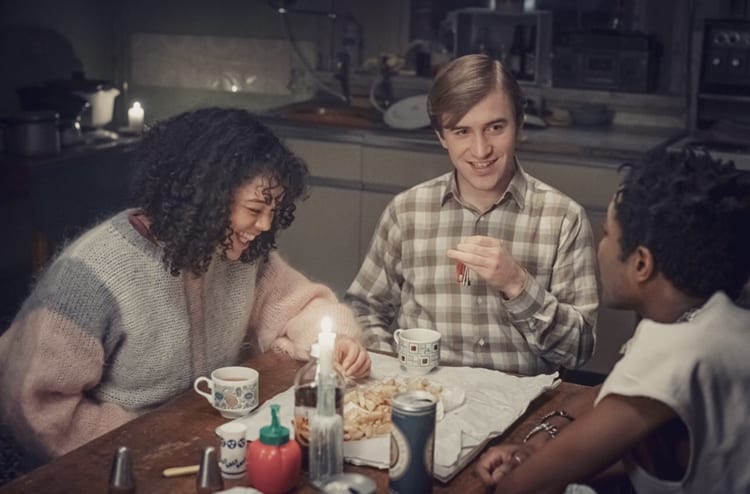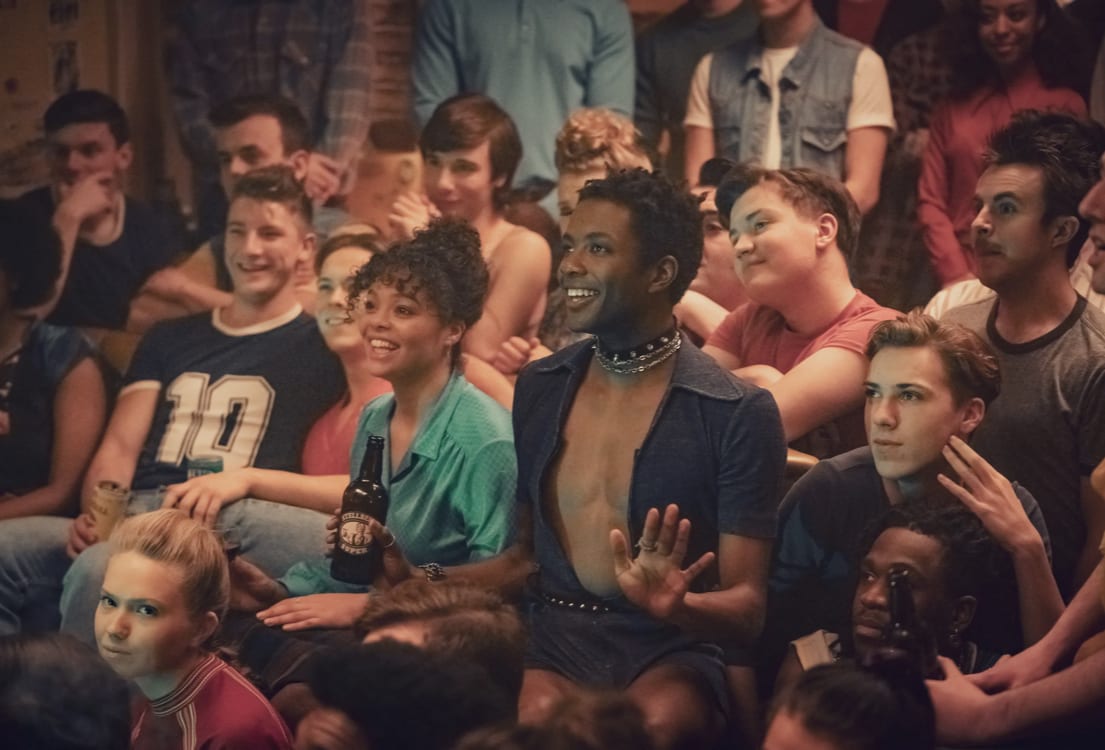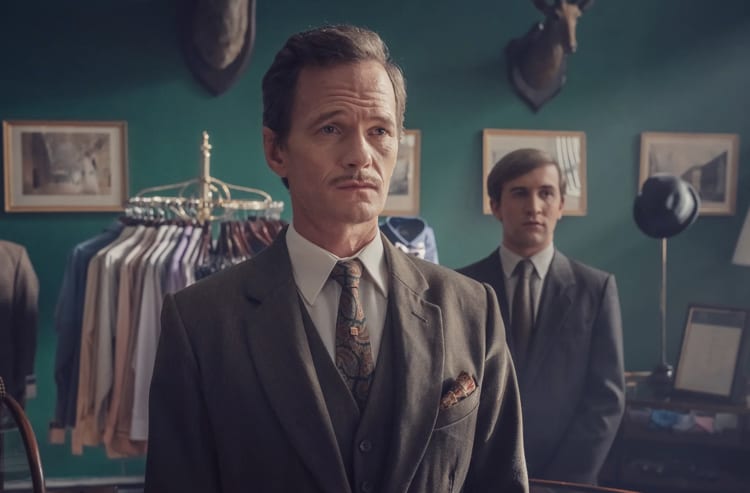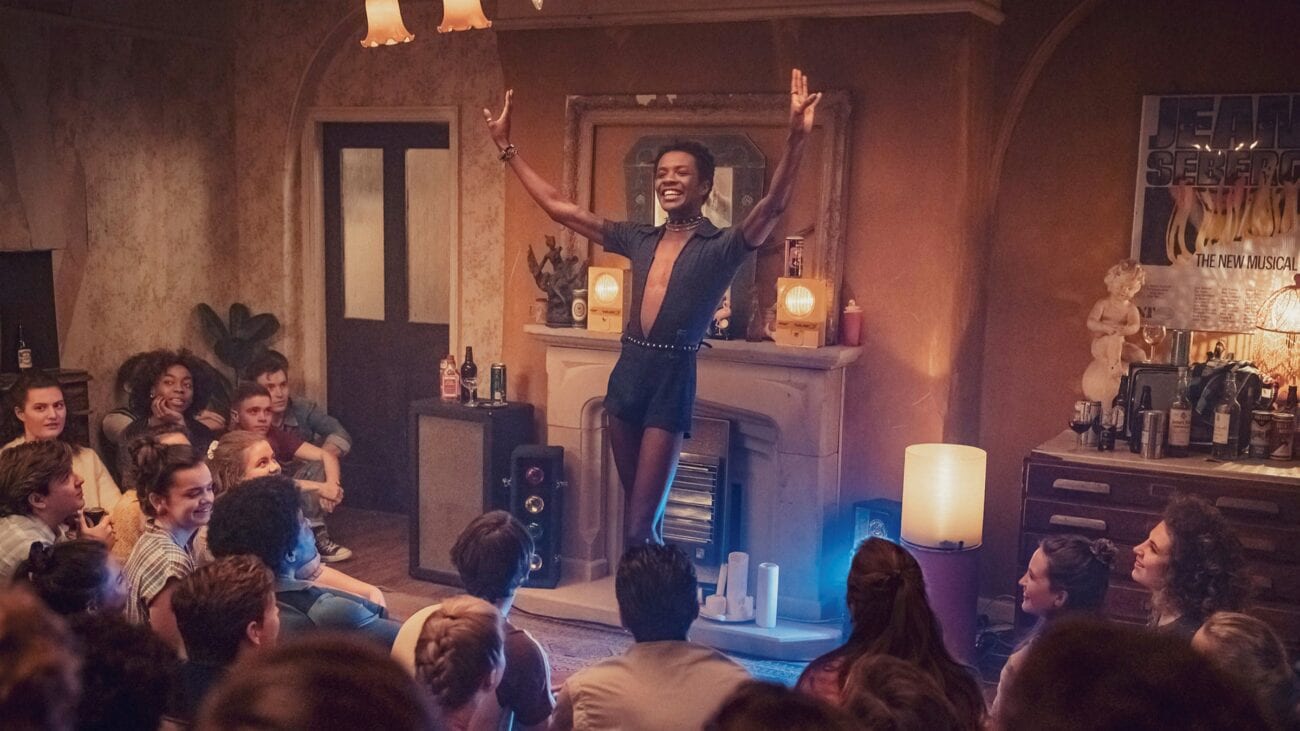Last Friday, February 19th, the final episode of the five-part series It’s a Sin aired here in the UK and I feel that it is the most important show I’ve ever witnessed in hoping to be educated in LGBT history. I am often reminded of just how lucky I am to live openly as a member of the community and to be accepted, even with experiencing bullying and hatred in school or out on the street, I haven’t handled even a fraction of the shame and inner torment that faced gay men and lesbian women in the 1980s. It’s a Sin completely devastated me and made me cry through all five of its episodes. It has some of the most heartbreaking, realest moments on television and don’t expect to watch it without having to face some very harsh realities.
Creator Russell T Davies is known for his LGBT dramas, and I personally see him as a man who nails the realities of the stories he tells down to a T. The story of It’s a Sin proves this point the most, as it tells the tale of multiple young gay men through the AIDS epidemic of the 1980s. Originally I was led to believe that Colin was our main character, as we followed him from his home in Wales to his new apprenticeship in London—he was one of many trying to escape to the city and live as a gay man, but Colin was so afraid. Watching him stare longingly at the slightly older son of the family he was staying with, while purposefully lying to his mother over the phone about having friends and partying, he struck me as someone who perhaps watched from the distance but longed to be involved. He probably filled his mind with many obsessions. Watching other men and dreaming of the life they could have together, while never actually making a move because he felt that he didn’t stand a chance due to lack of confidence above anything else. And I think, in the end, Colin confessed that he was exactly this kind of guy, but he could have been so much more. Upon joining friends at a party in a London apartment, Colin moves in with four friends, one of whom is the other protagonist of the show, Ritchie.

Ritchie’s story is so clever and inspired, it tells a very real story that I was blind to in my knowledge of the AIDS epidemic. Ritchie moves to London from the Isle of Wight, and at that time the island was closed off from the rest of the world when it came to being gay. Ritchie lived with a father who denied gay existence, or denied anyone who appeared to be any different. Being discreetly racist, and almost always portraying a threatening manner, he made me incredibly uncomfortable and afraid and he was perfectly designed to do so. Ritchie’s mother on the other hand is still a mystery to me after seeing the finale. She made me angry because her denial, or perhaps her simply blindly following along with her husband’s opinions, is the very reason that Ritchie was locked away during his childhood and ultimately at the end of his life. His mother made me want to scream at my television and wake her up from the insanity. I’ve come to learn since watching the show that this is exactly what living on the Isle of Wight during this time was like, there was no opportunity to be openly gay. It was shamed and something you would be forced to suppress. If there was an event aimed towards LGBT people, you simply didn’t go, out of fear. You couldn’t talk to your family, so you created a new secret collective of friends who knew your truth, and gathered in secret places. While these friends had a great time together, I can’t imagine how hard it would be to completely live in secret, but I think that the answer is the fact that many LGBT girls and boys moved away from their families and the island, never to return.
And it was a great time, on lots of occasions, and It’s a Sin doesn’t hide that fact. There were countless parties, singing, dancing, laughter, real friendships and countless lovers, and it all was so much fun in the moment, the fun side of it all is something remembered fondly while also being covered in a dark shadow of what those times led to, and people that were lost due to the carelessness of the fun. It’s a very uncomfortable thing to speak of the good times and honestly say that they were amazing in the moment because how can you speak highly of something that caused such heartbreak? Russell portrays the contrast in this show in a way that I never would know how to.

In my opinion, It’s a Sin is the kind of show that I would want someone to see who wasn’t in support of our community. I think it would give them an awakening of some kind to see the struggle and face the hard-hitting moments in the series. I also felt this way about Russell T Davies’ last short series for Channel 4: Cucumber, Banana, and Tofu. Both of these shows tell stories from the gay community that aren’t nearly told enough or told at all in this format. It struck me that both times Russell wasn’t ever afraid to disturb you, that was what he intended with certain scenes.
You will remember the moment in Cucumber that Lance was struck on the side of his head with a bat by Daniel, a man so afraid of being his gay self that he murdered the man he wanted. We sat there watching in shock for a minute of silence as blood poured from Lance’s head, and his life flashed before his eyes. It was a complete tragedy and you never expected it to happen, even for a second. Well, for me, and I don’t think I’d be alone in saying that Colin’s death shook me in just the same way. It all happened so fast, for we as the viewer were not aware that Colin had slept with anyone when we saw him fall to the symptoms of AIDS, neither were his friends.
But here we are seeing Colin crumbling and we are left confused before he lets it be known that he had a secret affair with that boy from his old home, and the one obsession he got to indulge in cost him his life because he wasn’t aware of the dangers yet. It’s completely unfair and enraging that nobody seemed to know or seemed to believe until it was too late. But Colin’s demise was critical because it proved the point that all it takes is one person, one night for some, to completely change your life forever—and in so many cases, bring your life to an end. For me, the most disturbing scene for Colin wasn’t learning he had passed, but it was when Ritchie finally faced his fears of coming to see Colin in the hospital. Colin had no capability to think before he spoke at this point and told Ritchie how he had a crush on him and would stare at him, and get off thinking of him, and he starts to touch himself in the hospital bed. I found it very hard to watch that because of how out of character it seemed. I think that conversation let us know that the Colin we had come to be attached to was almost completely gone, and it was so very dark.

In watching Colin and Ritchie’s stories, I found myself being blind just as others were at that time because I believed these two would survive, but they meet their end in the most tragic of ways and it happens entirely too soon. The shocking moments of It’s a Sin are plentiful and that’s how the show will force you into facing the reality behind the story.
As expected, Colin’s mother was there for him at the end. She supported him and his friends supported her. They would have wanted to do the same for Ritchie and his family but his mother took him back home and locked him away from them. The final shock of the show comes when Ritchie dies and he never got to reunite with his friends, they find out through her, and at first, I thought ‘Wow, she’s lying to them about this? She wants them to leave so badly?’ But no, Ritchie died on the Isle of Wight, again, being kept a complete secret just as he used to be. It’s such a harsh circle.
But it also highlights another reality, that people didn’t know how to handle the disease. It was completely new and separated families and friends who didn’t know how to treat someone with it. I’m glad the series enlightened me to how the treatment was handled even in the hospitals. Patients were kept in their separate rooms and even the nurses wouldn’t enter to give them food. Their friends had to keep their distance from them and took measures such as wearing gloves and scrubbing themselves clean to wash away any harmful bacteria. Nobody can be blamed there because it was completely misunderstood as to how the virus was transmitted, but it’s such a sad sight to behold that in the moments patients needed their loved ones and medical support, many were left completely alone at the end.

Now, I don’t know if Russell ever intended to put this show out during a pandemic but watching it while being stuck indoors during the third UK lockdown, it almost felt familiar to hear the talks of the spreading virus and the rise in deaths and possible vaccines. Both illnesses are far too serious and saddening to compare, of course. But I think it shined some light, perhaps unintentionally, on the way we treat this current pandemic.
I was surprised to see that Russell had introduced the conspiracies and speculations involved with the spread of AIDS because it’s such a sensitive topic, but of course, he did—he has no fear of sensitivity and in fact, that’s what the entirety of this mini-series is. Ritchie himself believes the virus to be a money-making scheme that is completely made up, he makes a joke of the disease: “Do you seriously think there is an illness that only kills gay men? It can calculate that you’re gay and kill you, but only if you’re gay and no one else? What about bisexuals? Do they only get sick every other day?” he speaks of the drug companies making a profit from creating an illness, and population control, and pays no attention to those who are dying around him. It’s even more apparent seeing this now, is it not? Because we are surrounded by people dying from a spreading virus, while watching people on the internet turning an incredibly serious event into a conspiracy, saying the exact same things that people were back in the ’80s. Maybe It’s a Sin is capable of highlighting the sadness and loss of what we’re currently experiencing through feeling completely devastated for the characters in this series. I felt that it was such an appropriate time for the show to air, but I don’t believe that Russell knew he would be providing a feeling of hope for those involved in an upcoming pandemic when he filmed this.
And yes, there is a feeling of hope overall. It’s a Sin might be set in the ’80s but its issues are still entirely relevant. A lot of the UK and US allow people to live openly gay and marry and live normal lives, things that Ritchie and Colin could only dream of. But there is still so much discrimination in the world, and transgender people who are just as much a part of the community as anyone are facing a very serious fight at the moment, struggling for their basic human rights like gay men were in the ’80s, and being ignored by many. Shows like It’s a Sin need to be appearing regularly. They are so important. They are educating us in the culture and history of our community and making some people aware of it for the very first time. They are introducing new and old generations to transgender people and people who are breaking the boundaries of gender roles and hopefully with that, making way for a new wave of acceptance for everyone in the LGBT community. It’s so sad because I shouldn’t need to be addressing this here, we should all be accepted for who we were born as and should all have basic human rights to live and love as anybody else does. But shows like this and men like Russell T Davies are fighting for us and that fact fills me with pride.
So yes, please, watch It’s a Sin. Never have I ever been able to label something so easily as a ‘must-see!’ It will educate you, open your eyes, and make you cry an insane amount. But at the same time, you will have fun, just like Ritchie states, “It was so much fun” to be a part of that community and to live in the collectives and surround yourself with a whole new chosen family. That is just as important to remember. You will fall in love with these characters, even those who are taken away entirely too soon, and you’ll love the amazing 1980s soundtrack that Russell has put together throughout the series—it really is the cherry on the icing on the cake. I hope you head over to All4 to watch the entire series, and it is now also available in the US through HBO Max.

